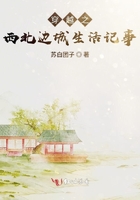Having by virtue of his office no stable duty to perform, he came down from the camp to the mill almost every day; and Anne, finding that he adroitly walked and sat in his father's portion of the garden whenever she did so in the other half, could not help smiling and speaking to him. So his epaulettes and blue jacket, and Anne's yellow gipsy hat, were often seen in different parts of the garden at the same time; but he never intruded into her part of the enclosure, nor did she into Loveday's. She always spoke to him when she saw him there, and he replied in deep, firm accents across the gooseberry bushes, or through the tall rows of flowering peas, as the case might be. He thus gave her accounts at fifteen paces of his experiences in camp, in quarters, in Flanders, and elsewhere; of the difference between line and column, of forced marches, billeting, and such-like, together with his hopes of promotion.
Anne listened at first indifferently; but knowing no one else so good-natured and experienced, she grew interested in him as in a brother. By degrees his gold lace, buckles, and spurs lost all their strangeness and were as familiar to her as her own clothes.
At last Mrs. Garland noticed this growing friendship, and began to despair of her motherly scheme of uniting Anne to the moneyed Festus. Why she could not take prompt steps to check interference with her plans arose partly from her nature, which was the reverse of managing, and partly from a new emotional circumstance with which she found it difficult to reckon. The near neighbourhood that had produced the friendship of Anne for John Loveday was slowly effecting a warmer liking between her mother and his father.
Thus the month of July passed. The troop horses came with the regularity of clockwork twice a day down to drink under her window, and, as the weather grew hotter, kicked up their heels and shook their heads furiously under the maddening sting of the dun-fly. The green leaves in the garden became of a darker dye, the gooseberries ripened, and the three brooks were reduced to half their winter volume.
At length the earnest trumpet-major obtained Mrs. Garland's consent to take her and her daughter to the camp, which they had not yet viewed from any closer point than their own windows. So one afternoon they went, the miller being one of the party. The villagers were by this time driving a roaring trade with the soldiers, who purchased of them every description of garden produce, milk, butter, and eggs at liberal prices. The figures of these rural sutlers could be seen creeping up the slopes, laden like bees, to a spot in the rear of the camp, where there was a kind of market-place on the greensward.
Mrs. Garland, Anne, and the miller were conducted from one place to another, and on to the quarter where the soldiers' wives lived who had not been able to get lodgings in the cottages near. The most sheltered place had been chosen for them, and snug huts had been built for their use by their husbands, of clods, hurdles, a little thatch, or whatever they could lay hands on. The trumpet-major conducted his friends thence to the large barn which had been appropriated as a hospital, and to the cottage with its windows bricked up, that was used as the magazine; then they inspected the lines of shining dark horses (each representing the then high figure of two-and-twenty guineas purchase money), standing patiently at the ropes which stretched from one picket-post to another, a bank being thrown up in front of them as a protection at night.
They passed on to the tents of the German Legion, a well-grown and rather dandy set of men, with a poetical look about their faces which rendered them interesting to feminine eyes. Hanoverians, Saxons, Prussians, Swedes, Hungarians, and other foreigners were numbered in their ranks. They were cleaning arms, which they leant carefully against a rail when the work was complete.















